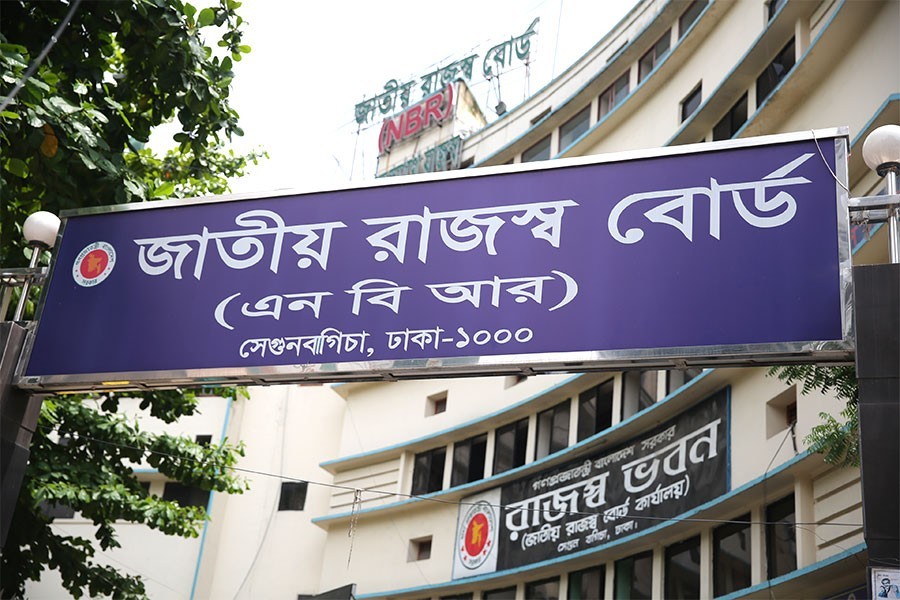
Published :
Updated :

When the Finance Minister had unfurled the budget for the immediate past fiscal year (FY), it was more of a foregone conclusion that the revenue earning target set for the National Board of Revenue (NBR) would be beyond its reach. Since the target was a bloated one, fixed along the line followed in the preceding years, almost everyone predicted the target would go unmet. The prediction proved true as the shortfall in revenue collection, as against the original target in the FY 2017-18, was 17 per cent. What has, however, been more frustrating is that the NBR is not able to meet even the revenue targets revised downward, usually, ahead of the final quarter of the fiscal. In the FY 2016-17, the shortfall as against the revised target was more than 7.5 per cent and that in the immediate past FY, it was 9.0 per cent. Since the government had to defer the enforcement of the new VAT law, adopted in the FY'12, in the face of opposition from businesses, the officials concerned had calculated that the tax revenue shortfall would be around Tk 200 billion because of the deferment. But the actual shortfall has more than doubled, compared to the original tax (NBR) target.
There is no denying that the aggregate tax revenue collection by the NBR in the immediate past FY was nearly 20 per cent more than that earned in the preceding FY. But such an increase is not compatible with the government's expenditure plans as envisaged in the annual budgets. However, the shortfall does not create much problem for the government since a number of its agencies are incapable of spending budgetary allocations, particularly in the case of development projects. Had these agencies been efficient enough, the government would have been forced to borrow more from the country's banking system. Lately, it has been meeting most part of the budget deficit through the sale of national savings instruments.
Besides, the shortfall in resource mobilisation and execution of budget have prompted many to suggest that the government should cut its coat according to cloth. They feel that instead of playing to the gallery, in terms of budget size, the government needs to be practical and prudent in budget making. However, it needs to strengthen its efforts to mobilize more resources and improve the capacity of the line ministries and agencies in the matters of budget execution. One can hardly miss the notable structural change that has taken place in the NBR's tax revenue collection. Import duty that once was the top revenue earner has been relegated to third place with VAT (value added tax) and income tax occupying the first and second places respectively. The cut in import tariff following the liberalisation of global trade has been responsible for lower revenue earning by customs. Yet emphasis on VAT and direct taxes has helped the government recoup the loss and even earn more.
But the increase in revenue, it is widely believed, has been well below the potential. This is because the NBR people are still not adequately geared to the task of mobilising enough resources that the country needs either to achieve the Sustainable Development Goals (SDGs) or the goal of attaining the middle-income country status within the stipulated time. Certainly, there has been improvement in the performance of the taxmen but not up to the desired level. The so-called reforms and automation, possibly, have remained half done. It is important to complete those for the sake of improving the performance of the NBR people, in particular.


 For all latest news, follow The Financial Express Google News channel.
For all latest news, follow The Financial Express Google News channel.